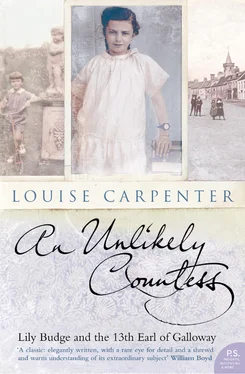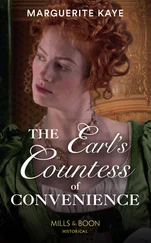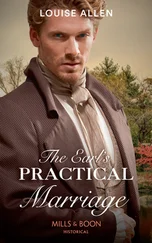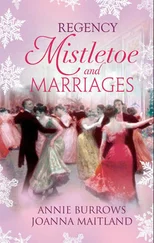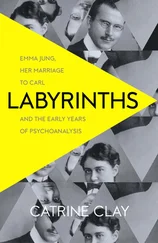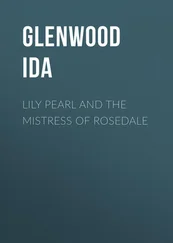On arriving in London unscathed by drama, Lily and Randolph went to 20 Great Peter Street, SW1, the clergyhouse of St Matthew’s, Westminster, offered by the Vicar Prebendary Gerard Irvine. (Shortly afterwards, they would move to temporary accommodation in SW5 and thereafter use a series of cheap tourist hotels such as The Hansel and Gretel, £12.65 a night including VAT and breakfast.) The following day, 16 May, Randolph took his seat and Lily settled herself on the red leather pews of the Peeresses’ gallery, front row, first in. She watched over him proudly as he sat mute on the Conservative benches in front of her. He did not deliver a maiden speech, which was for the best.
Outside the gates of Parliament, she posed for a photograph. ‘The Lords is the most caring place in the world!’ she later told a newspaper reporter. ‘If I had my way we would live in London permanently.’
When Lily was not guiding Randolph about the wood-panelled corridors or sitting in the chamber, with her eyes attentively trained on him in the manner of a dog to its master, she could be found in one of three places: in the House of Lords’ stationery cupboard, availing herself of as many complimentary cards and envelopes as would fit into her handbag; on the telephone to family in Scotland, a service which was also complimentary; or in the tearoom, knitting needles in hand, eating tea and toast with the Scottish peeresses who befriended her.
There was nothing in Lily’s outward appearance to distinguish her from the other peers’ wives except perhaps a little weariness. She was set apart principally because she had no interest in behaving as expected. Her occasional guests from Scotland saw that she liked to congratulate the other wives on their appearance – ‘My, Lady so and so, what a dear little hat you are wearing today’ – and every morning, on entering the House, she made a point of inquiring after everyone’s health – ‘Good morning Mr Skelton [then a junior doorkeeper], how are you? And how is your mother? Oh, will you send her my regards?’
Lily and Randolph considered themselves to have an important patron. The 17th Earl of Lauderdale, Patrick Maitland, a well-respected Scottish hereditary peer, former MP for Lanark, former reporter for The Times , and one of the last men in Britain to make use of a large ear trumpet, had come to know them through the ecumenical pilgrimages he organised to St Mary’s Kirk, his private chapel in the parish of Haddington, not far from Edinburgh. They were, he had long ago concluded, a very curious couple, at times exasperating, but of the sort that he found himself drawn to helping, often against his better judgement. When Lily had asked for his help in completing the necessary paperwork to propel Randolph to the House of Lords, however, he had had few misgivings. He had lent a hand, confident, as was she, that the act of elevating Randolph to the role for which he had been born might be the making of their marriage. Now that they had succeeded, within days of their arrival Lord Lauderdale found to his dismay that his good deed had returned to torment him. Lily sought him out whenever she could, falling into step beside him as he puffed his way down the corridors, or crying out to him across the tearoom. Soon, Lord Lauderdale found himself darting behind pillars to avoid her, not easy for a man of his girth. On the rare occasions that he escaped Lily’s notice, he would watch with bemused fascination as Lily and Randolph huddled together with furrowed brows, poring over the weekly whip, ‘more out of excitement than understanding’.
Word quickly spread about Lily and Randolph’s circumstances. While the Scottish peers and peeresses might return weekly to imposing seats scattered throughout the lowlands and highlands, they were not inclined towards the high life. But even by their standards of frugality, they saw that the new recruit was unusually strapped. Lady Saltoun, chief of the Fraser clan, a cross-bencher and another addition to the upper chamber that year, recognised Randolph’s limitations immediately. She remembered him as a teenager, when he was Lord Garlies, and it made her shudder. As an eighteen-year-old girl, she had been forced by her parents to dance with him at a masonic ball in Glasgow. It had been an awkward experience and one she was keen to forget. But despite faint memories of whispered talk of the boy’s disappearance from Scottish society, his sudden and unexpected reappearance in the House of Lords thirty years later met no interrogation or indiscretion.
During those early exhilarating days, Lily experienced a feeling of true belonging. It was a feeling of power and privilege by proxy. But it was to become apparent that Randolph could not fulfil his role. Some time before they left, Lily had an encounter that reminded her of how far she had come from her world, one to which she could not now return and to which she felt she had never spiritually belonged.
The reminder came in the stately if unlikely figure of Lord Home of the Hersel, who had succeeded Harold Macmillan as Prime Minister in 1963, but who had now returned to the upper chamber as a life peer. Lily did not hesitate when she saw him walking towards her in a corridor. She stopped him in his tracks. Speaking without pause in her thick Borders accent, as was her way, she reminded him of that time when they had met quite by chance more than forty years ago. The encounter had been at the Caledonian Hotel, Edinburgh, at the wedding reception of one Bunty Johnston, the daughter of R. J. Johnston, a lawyer and the County Clerk of Berwickshire. Lily would not normally have attended such a function but her older sister, Etta, was the Johnstons’ servant girl and Lily had been invited too, as she helped Etta with the Johnstons’ spring cleaning. ‘Oh Etta, I must come, I must!’ she had said. ‘It’s the only time I will ever have the chance of seeing the inside of the Caledonian Hotel.’
‘How nice to see you again,’ the former Prime Minister replied, either out of impeccable memory or, more likely, impeccable manners. ‘It has been a very, very long time.’
Soon after Lily May Miller entered the world on 28 October 1916, she began to understand that the single benefit of being born into small-town life was that it could eventually be left behind. Her mother, nicknamed Sis and known for being fierce and cross, had spent her life bringing up her siblings and then her children, weaving blankets at Cumledge Mill, hunched, scowling, over two looms at once. Her father, a local groom, had run away from a tenement in Glasgow, desperate for country air, and when not at home and being subjected to his wife’s wrath, could usually be found in the stables, content among the horses.
The Borders town of Duns, which sits close to the Berwickshire coastline, was until 1975, the county town of Berwickshire, the administrative commercial and agricultural hub of neighbouring border towns such as Selkirk and Galashiels. As well as the cattle market every other week, set up for the buying and selling of farm equipment, once a year there were the Hirings in the Town Square, where employers traded farm hands and children skipped and played in the accompanying fair.
Duns had none of the excitements or department stores of Edinburgh and Glasgow, but it was well served. Everything of significance was conducted in or close to the town square, dominated by the town hall, where ladies in hats and gloves stopped to exchange gossip. Sometimes the news was of the latest young girl who had got herself pregnant out of wedlock, reliable information put about by two of the three Miss Smalls, large spinster sisters in brown fur coats who ran the baby linen shop and sold sanitary towels in brown paper parcels tied up with string. (It is a measure of how little there was to do that the Miss Smalls had the time and inclination to track the menstrual cycles of their customers.) The women in the town square, or those propped on brooms on their doorsteps, would nod and tut and predict the girl’s demise. These women preferred their husbands to travel to outlying areas to buy their birth control, the thick, ghastly condoms that were washed after use and dried with a sprinkling of talcum powder. Sex: pity the person who muttered the mere word, let alone the woman who admitted enjoying it.
Читать дальше
